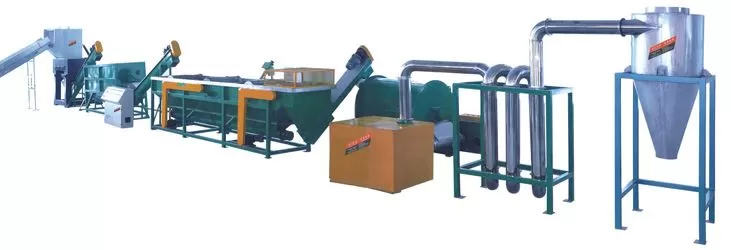Have you ever wondered how a small country like Slovenia tackles the massive issue of plastic pollution? Slovenia is taking proactive steps to address this challenge head-on. Their focus on plastic recycling is a critical part of their environmental protection strategy. Curious about their approach?

Slovenia has successfully reduced plastic waste through strict environmental policies and innovative recycling technologies. The government collaborates with businesses to implement effective recycling programs, raising public awareness about environmental protection.
Slovenia’s successful strategies can serve as a valuable example for other countries. Let’s dive into the details of their environmental and plastic recycling measures.
How Does Slovenia Promote Environmental Policies?
The Slovenian government prioritizes environmental protection. They have established strict regulations requiring businesses and residents to reduce plastic usage and actively participate in recycling. These policies not only help reduce pollution but also promote sustainable development.
The government also invests in the research and application of environmental technologies. For instance, they encourage the use of biodegradable materials to reduce dependence on traditional plastics. These measures have been highly effective, positioning Slovenia as a leader in environmental protection.
What Specific Measures Are Taken for Plastic Recycling?
Slovenia has implemented various measures for plastic recycling. Firstly, they have established a comprehensive recycling system, including community recycling centers and waste sorting facilities. This makes it convenient for residents to sort and recycle their waste.
Additionally, the government has launched numerous educational campaigns to raise public awareness about environmental protection. Schools, community centers, and media outlets actively participate in these initiatives, educating people on the importance and methods of recycling. These efforts have significantly increased the plastic recycling rate.
What Role Do Businesses Play in Plastic Recycling?
Businesses play a crucial role in Slovenia’s environmental and plastic recycling efforts. Many companies proactively adopt environmentally friendly practices, reducing plastic use in production and actively participating in recycling programs.
Some businesses collaborate with the government and environmental organizations to develop new technologies that enhance recycling efficiency. For example, certain companies use advanced sorting equipment to quickly and effectively separate different types of plastics, greatly improving the quality of recycled materials.
How Is Public Environmental Awareness Enhanced?
Enhancing public environmental awareness is a key factor in Slovenia’s success. The government and environmental organizations disseminate information through various channels. For instance, they incorporate environmental education into school curricula, organize community lectures, and use social media to spread environmental knowledge.
Moreover, Slovenia hosts numerous environmental activities such as cleanup days and recycling competitions, attracting broad public participation. These activities not only raise environmental awareness but also foster eco-friendly habits.
What Is the Relationship Between Environmental Protection and Economic Development?
Many people believe that environmental protection limits economic development, but Slovenia proves otherwise. By promoting environmental protection and recycling, Slovenia has improved the environment while advancing sustainable economic development.
The growth of the environmental industry has created numerous jobs in Slovenia. At the same time, advanced environmental technologies and recycling systems have attracted many international investors. Thus, environmental protection and economic development achieve a win-win situation.
What Is the Future Outlook for Slovenia’s Environmental Efforts?
Slovenia has made significant achievements in environmental protection and plastic recycling, but they are not resting on their laurels. In the future, they plan to further increase recycling rates, promote the use of biodegradable materials, and strengthen international cooperation.
The government and businesses will continue to invest in environmental technologies, developing more efficient and eco-friendly recycling methods. Slovenia aims to become a global leader in environmental protection, offering valuable experiences for other countries to learn from.
Conclusion
Slovenia’s success in environmental protection and plastic recycling demonstrates that through scientific policies, technological innovation, and increased public awareness, environmental protection and economic development can coexist harmoniously. We can learn a lot from their experience and contribute to the global environmental cause.
